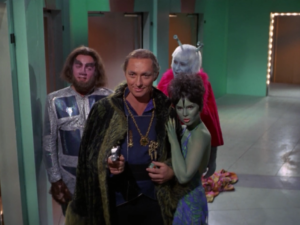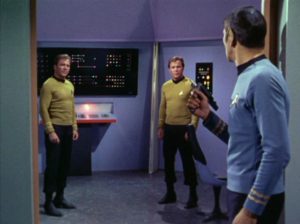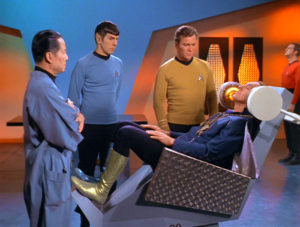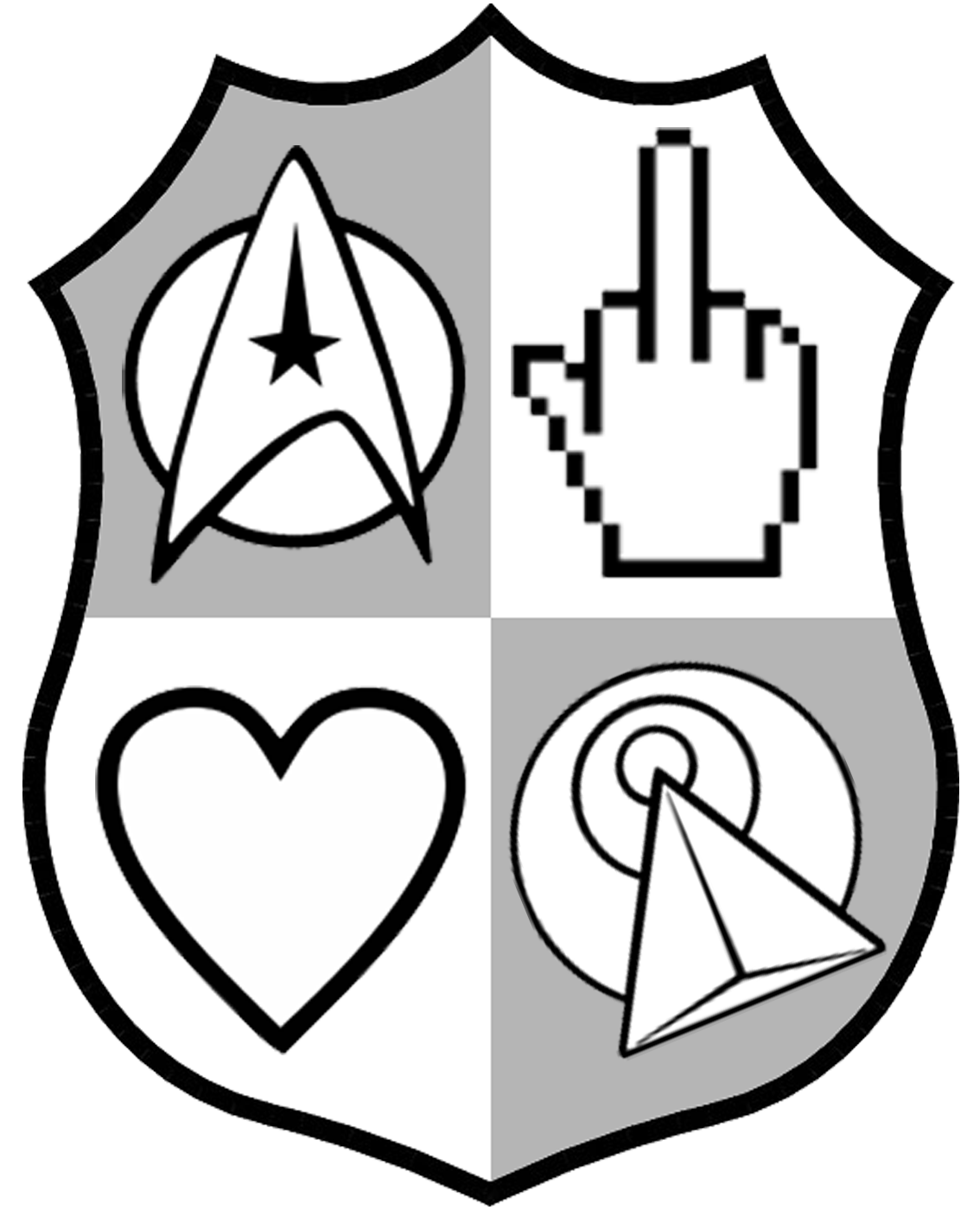Ari
February 15, 2017
Episode 69 – TOS 3×14: “Whom Gods Destroy”
So, chances are, you have a hazy memory of a Star Trek episode that takes place in a mental hospital of some kind. Like us, you probably made it to Dagger of the Mind and went “wait, what? why is this way worse than I remember, and not just because it’s been twenty years since I last saw it?” Well, I’m about to put your mind at ease, because it turns out that there are, in fact, two Original Series episodes that a) take place in a mental health facility and b) talk about mental illness in a surprisingly sympathetic and progressive way, e.g. It Is An Illness, and this is the second one. The do-over, if you will, given that their actual plots are really, really similar. And spoiler: this one’s a lot better.

The Enterprise visits the Elba 2 asylum (a facility for the “incorrigibly criminally insane” deemed incurable by other medical means) to deliver a new wonder drug that Federation scientists hope will provide the cure to all mental illness… or at least, that’s the idea, broadly speaking. Kirk and Spock beam down to deliver the vials and learn that one of Kirk’s heroes, Captain Garth, aka: Garth of Izar, is now an inmate at the hospital. Because apparently no one’s ever told him that you should never meet your heroes (seriously, specifically in Kirk’s case – it never goes well), he asks the Governor if he can see Garth.
Naturally, it’s about two minutes later that we learn that Garth has replaced Governor Corey, taken over the asylum, developed an ultra-explosive capable of destroying planets, and has grand plans to take over the galaxy because the extinction of war as a way of life has made humans weak and robbed them of purpose. Oh, and by the way, Garth has developed shapeshifting powers that allow him to look like anyone he wants. Guess who his new favourite shape turns out to be.

Kirk is absolutely opposed to this entire way of thinking, and he says so, a lot. Peace, Kirk says, gave him purpose. Peace brought prosperity to the galaxy. Peace made Kirk and Spock brothers. Peace – and compassion, and friendship – are the way forward, into the future.
If this refrain sounds familiar to those of you who’ve seen and liked the thesis statement of Star Trek: Beyond, you’re not alone. And this episode deals with similar themes, enough that we saw direct connections between Whom Gods Destroy and the reboot film. Garth, despite his clear Napoleonic roots, is a sympathetic character. Kirk, while trying to argue him out of the whole galactic domination thing, repeatedly tells Garth that what he’s doing is wrong, but that it’s not his fault: that he’s sick, and that what’s happening isn’t his fault. You could brush this off as coming from Kirk’s clear affection for the man’s legacy, but it’s also obviously rooted in a culture that has gone a long way in destigmatizing mental illness. Garth, we’re told over and over again, is not his mental illness. Garth’s not crazy, he’s sick, and Kirk wants to help him.

These are all attitudes we rarely see convincingly portrayed in twenty-first century television, and moreover, it’s strongly implied that a life of war and its associated trauma may have caused Garth’s mental illness in the first place, long before an accident maimed him and led to his developing superpowers. In the end, the message of this episode is larger than our oft-repeated “safe words save lives.” It’s about compassion, and about how friendship is, really, kinda magic.
Podcast: Play in new window | Download | Embed
Subscribe: Apple Podcasts | Email | RSS
Related Posts
-
Episode 85 – “Star Trek 6: The Undiscovered Country”
June 23, 2017
-
Episode 84 – “Star Trek 5: The Final Frontier”
June 14, 2017
